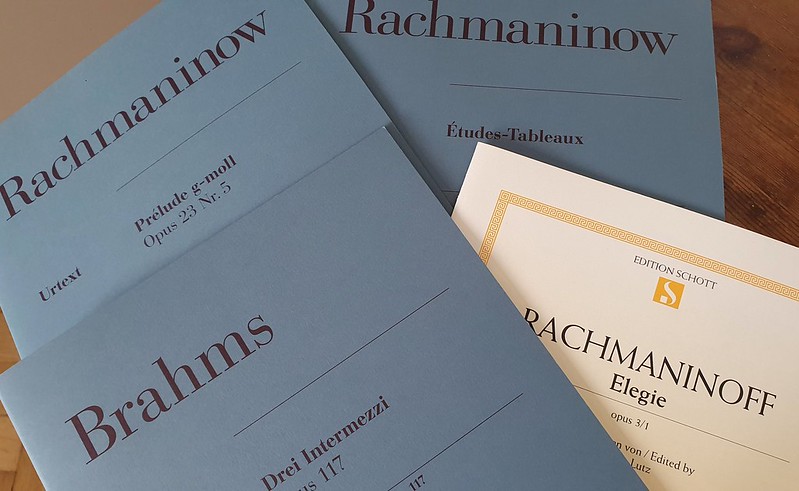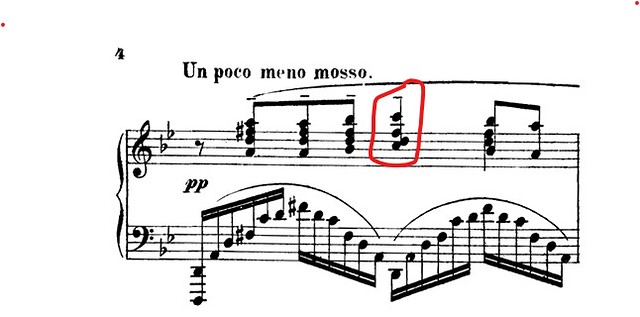I’m on a 35 day streak for piano practice. Some of those practice sessions have been short – Thursday’s was 5 whole minutes. Nevertheless, it’s been good.
It’s my longest daily practice schedule since I turned my attention back to playing the piano about 18 months ago. I’m happy. I’m up to the Ruby Level on Tonic and I don’t see any blocking points between here and 3 November so fingers crossed that I make 50 days soon. After that, November and December will be challenging.
This week, no sight reading to report – I need to sort out my piano magazines and ensure I have consistent access to them. The main new sight reading I did was for the pieces I am preparing which is sort of okay but not quite what I want for sight reading practice. Most recently, Ballade No 1 which I started last week.
For the main four exam pieces there was progress on all of them, not enough in two cases, but a better than zero effort.
Rameau. I can play all of this through, not exactly error free and it’s currently at a slow enough speed that it takes a good chunk of practice time. Of the four pieces, it is the longest in terms of music to be played but it is also the piece I am closest to performance ready with. I have not memorised all of it; there is a section of page 4 left to internalise, and that section was proving very slow to read last week, can now be played at a speed that is consistent with most of ther rest of it. I’m working on speeding up the opening A section and the number of errors I am making there is dropping radically. I’m playing it a lot more consistently. I continue to have some issues with leaps and stretches through the end of page 1, good lot of page 2. But again, far better than last week. It is entirely possible that by the time I have to do this exam, I will hate this piece for the simple reason it has come on so much faster than the others
Debussy: opening section is coming along nicely. I love some of the sound textures, wish my fingers would behave more efficiently. I’m well into page two; there is one stretch that I don’t much like and it is impacting on my certainty about being able to play it smoothly for a while yet. It’s going to come in handy for similar issues in the Liszt piece which I’ll discuss below. Most of page 1 is memorised, not yet quite enough for me not to need to read it. For the future, I suspect the Henle layout is better than the Editions Peters layout.
Some of the sounds in the Debussy remind me of bells; and I suppose that’s reasonable if you are in an armchair in a country village with a church nearby in bucolic France; I’ve no idea whether he did that but it’s the impression it builds within me. Assuming no major accidents, I think this might be done before Christmas or early in the new year. I may have to find public concerts to play it and the Rameau at.
Liszt: This is slow going. I’m not sure why – I think part of it is the rhythmic structure; part of it are the moves of the lefthand around the keyboard. I’m not going to say I’m struggling with it but it is not making as much progress as I would like. It’s not consistent. It’s easier to read than the Debussy but harder to learn. It’s a three page piece and from what I can see, not as many repeats, if any, as JP Rameau has gifted me. I need to set down and seriously think about how to approach this. What I will say is that the chunk of regular playing has expanded but I am still very much confined to page 1 and will relisten and chop it up with a view to starting some other parts of the piece in parallel so that eventually, once I have the start mastered, I will have a lot of the rest of it done. I read through some of page 2 during the week; it’s more interesting but it includes a section which is highly counter intuitive for me; that is the section where the melody comes out through the left hand. This, in one way, is a key reason why I want to learn the piece. It gives me challenges and will provide me with input for the next section.
Rachmaninoff: this is really slow going and I suspect this is the piece that will delay the entire endeavour. On paper, it’s straightforward. I’m not going to say I am a fan of the triplets but for the most part, they aren’t enforcing (yet) any disturbing polyrhythms. But I consistently get them wrong. Mathematically they are fine; aurally I am fighting with them. I love Rachmaninoff so I am not in a mood for giving up on this and replacing it with either Tchaikovsky or Chopin. I could do June by Tchaik as a self selection (I don’t really like the option of January which is on the syllabus for 2025-26. So I am taking this quite slowly and assuming that at some stage, this will start to slide into place.
I did not touch Chopin 17/4 this week so no news on that.
Outside the syllabus, Chopin Ballade No 1. I have no idea what this sounds like to an outsider, and I am at the very beginning of a really long journey here but I love this so much. My initial target is to deal with the first two or so minutes but there are a few challenges to go with this on page 2. We will see.



